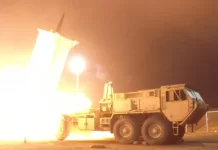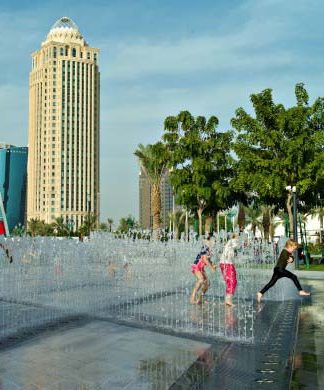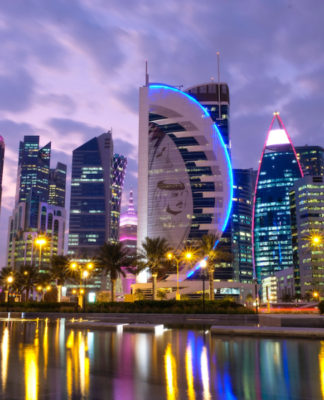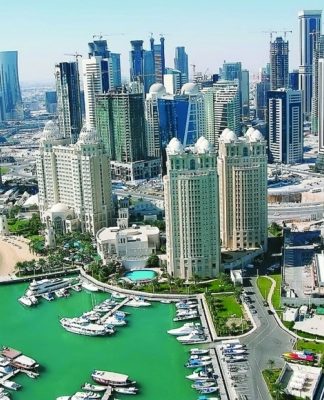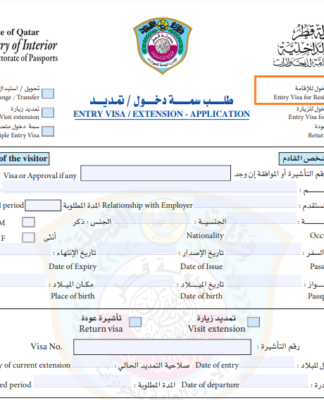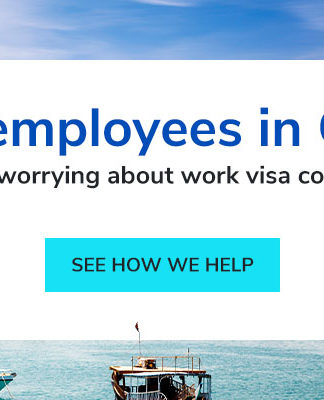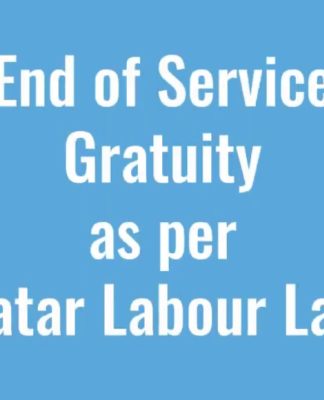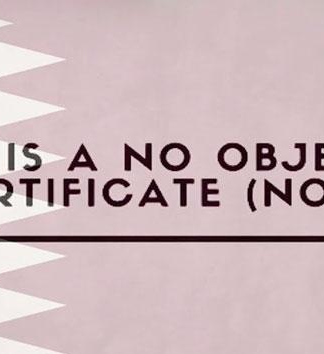EUROPE
EU ban too feeble to fight forced labor, groups say
The European Commission has released a new regulatory proposal taking aim at forced labor. But in the worst case, it may end up being unenforceable.
Miner in Brazil cupping diamonds in palms
Forced labor takes place around the world
If you buy products in the European Union, you might assume that those products are free from forced labor. But until now, this assumption would be wrong.
That is supposed to change with a new EU policy proposal released today, intended to prohibit products made with forced labor from being bought or sold on the common EU market.
After various versions of the proposal being leaked to the press, the European Commission has now released its take at attempting a ban on forced labor.
Though the proposal was broadly welcomed by both labor rights organizations and businesses, critics point to deficiencies — which might cut into its effectiveness.
Long in the making
Commission President Ursula von der Leyen had initially announced the intention for a ban during her State of the European Union address in September of 2021.
“We can never accept that [people] are forced to make products — and that these products then end up for sale in shops here in Europe.”
According to a recent report by the International Labour Organization, 27.6 million people are engaged in forced labor worldwide; an increase of 2.7 million over the past five years.
Forced labor is when people are coerced to work through the use of violence or intimidation, or even to pay off a debt. It’s common in many sectors around the world, from manufacturing to minning.
But one year after von der Leyen’s initial promise, the commission’s much-anticipated proposal is seeing a lukewarm response.
“There seems to have been a reluctance to be very ambitious with this proposal from the very beginning,” said Christopher Patz, a policy officer with the European Coalition for Corporate Justice in Brussels. With groups campaigning for more than a decade, “It’s a disgrace it’s taken so long.”
Chinese mine workers in Indonesia
Forced labor is in the mining of raw materials is well documented
How would it work?
The proposed regulation would allow any actor to submit a complaint over suspected forced labor to the national authority responsible for policing imports in an EU country, which the authority would then investigate. That body would be able to stop the product from entering the EU or even destroy it.
Covering all products, it would also include setting up a public database indicating the likelihood of whether forced labor is taking place in a particular region.
Organizations advocating to end forced labor point to several positives in the regulations, such as the open database and how the proposal would be product-based and thus apply to all companies. They also praise how the proposal very clearly outlaws products made by forced labor.
“For maybe the first time, forced labor is clearly illegal to use and put on the market,” said Muriel Treibich, a lobby and advocacy coordinator with Clean Clothes Campaign’s international office in Brussels.
But watchdogs also point to problems with the proposal in its current form.
Burden of proof is key
“The Commission proposes to exclude goods from the market only after the existence of forced labor in their supply chain has been established, not when it is suspected,” said Anna Cavazzini, the German member of European Parliament who negotiated for the Greens on the topic.
This is different to US legislation, where authorities may prohibit imports based on reasonable suspicion. The US framework also places the onus on companies to prove their products are free from forced labor.
The EU proposal, in contrast, places the burden of proof on European authorities, which are under-resourced and would end up doing piecemeal enforcement, critics say.
“I would have indeed been happier to see the burden of proof with the company in question as it is easier for them to gather information inside their supply chain,” Cavazzini told DW.
Containers stacked, also on ships, in the Duisburg harbor
The ban on forced labor would apply to all products entering the EU
The EU proposal’s high standard of evidence “makes it a bar that’s very high to meet for civil society and for national enforcers,” said Ben Vanpeperstraete, a senior legal adviser at the European Center for Constitutional and Human Rights, also based in Brussels.
This high evidentiary standard, coupled with opaque EU customs import data, means “It’s very unlikely that we’ll see much enforcement on this proposal,” Vanpeperstraete told DW.
German EU parliamentarian Cavazzini is more optimistic, believing the mechanism can still work. She added that she will fight for the burden of proof to fall on the company as the proposal now moves to the Parliament.
It must also still wend its way through the European Council and could take another year or two before being finalized.
Concern over bottom line
Solaria, a Spanish solar photovoltaic energy company, is among industry players expressing concern over the proposal.
“We should not forget that there exist certain limits for private firms to verify the whole supply chain,” Solaria submitted to the Commission in June.
Sandra de Linos Sanz, head of sustainability for the Madrid-based company, emphasized to DW that Solaria maps its supply chain and doesn’t source anything from forced labor. She also said Solaria supports the need to avoid practices that violate human rights.
Female worker producing photovoltaic solar components at a factory in Haian, in China’s eastern Jiangsu province
Rare earth elements are present in technology from solar panels to smartphones
“But we think the problem must be tackled from a global point of view,” she said. She pointed to data that in 2021, 35% of global polysilicon — a very pure form of silicon and rare earth element that is a key raw material for solar panels — came from Chinese region of Xinjiang. This region has come into focus as tens of thousands of minority Ugyhurs have allegedly been forced to labor in camps and factories there.
With a booming solar market, a ban on raw materials from forced labor could push up production costs, possibly impacting a company’s profit margin or product pricing.
“We think that if a ban is very strict, that could be negative for the market,” Linos said.
Redefining business as usual
Rights advocates say there is no excuse for using forced labor.
Legal adviser Vanpeperstraete pointed out that companies have various means of handling such potential cost increases; for example, by reducing their margins.
With clothing, he said, wages make up about 1% of the retail price (marketing can comprise 50%). A company could shift resource allocation in production or raise prices. “A 1% price increase on a t-shirt — I don’t think that’s a bad idea.”
Patz, the policy officer, pointed to OECD data showing that responsible business habits, though involving an initial investment, over the long term boost efficiency and resiliency.
“If you can’t be sure your business model is not contributing to forced labor, then you shouldn’t be in business,” he said.
“Phasing out slavery also caused an economic shock.”
Play Video2:51 min
Forced labor on the rise globally
Edited by: Kate Hairsine
DW RECOMMENDS
China ratifies international forced labor conventions
China will ratify two different conventions on forced labor amid Western pressure and criticism over Beijing’s treatment of minorities in the Xinjiang region.
Germany: Rights group files complaint over forced Uyghur labor
Five German retailers, including C&A, Lidl and Hugo Boss, have been accused of using forced Uyghur labor in their supply chains.
Xinjiang cotton boycott leaves Western brands reeling
Names like Adidas and Burberry face a dilemma: either respect a boycott on cotton from China’s Xinjiang region — reportedly produced using forced Uyghur labor — or lose access to the world’s biggest consumer market.
Date 14.09.2022
Author Sonya Angelica Diehn
Related Subjects Uyghur community, European Union (EU), People’s Republic of China
Keywords European Union, forced labor, common market, China
Feedback: Send us your feedback.
Print Print this page
Permalink https://p.dw.com/p/4Gphw







